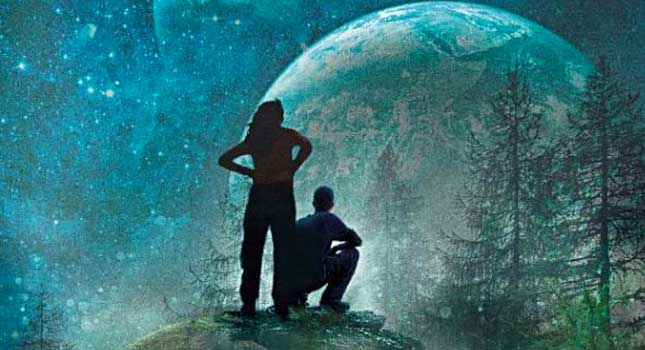
Sadly, it’s the last of the books to be written and published during Terry Pratchett’s lifetime, following his death in March earlier this year. We’re not too sure how much of the final book the two authors managed to get through before Terry passed away, but they’re sure to have discussed the culmination of The Long Earth saga at least, so there should still be a fair few nuggets of his wild creativity even if Stephen Baxter has had to finish the book alone.
It’s the combination of this creativity and the sheer dedication of the series to theoretical science that makes it such a compelling proposition. These positives do a lot to take the heat off the more negative aspects of the book, but they aren’t enough to force a high scoring review out of us unfortunately, despite our long-standing love of all things Terry Pratchett.
This time the story turns to another foreign invader to the long earth, following on from the events of The Long Mars, which saw Sally trekking on a wild adventure on the stepwise extension of the red planet and the reveal of a new stage of human evolution in The Next. Having already looked at the native super entity First Person Singular in the first novel, the writing duo have focused on a new threat from outside of our solar system.
It’s got a long, slow progression with the pieces of the puzzle of a new threat to the stability of the Long Earth trickling into place more like a mystery novel than a sci-fi adventure. Joshua Valienté’s headache is back, signifying a problem across the multiverse, but it take him, Lobsang, Sister Agnes and Sally a lot of procrastination before they get anywhere near the invading alien android beetle creatures that have been industriously working away under ground as part of their expansionist plans.
However, the reveal to the reader happens much earlier in the books, so a lot of the story leaves you waiting for the rest of the characters to catch up with something that’s you’ve been privy to for a while. It’s a bit like an Agatha Christie story that tells you the killer in the second chapter and then lets you follow along to see how Poirot works it all out too. It’s obviously a bit more complex than that as there’s still a lot you don’t know when you first encounter the seemingly benign creatures, but it doesn’t leave much in the way of suspense.
The Long Utopia‘s doesn’t really get into a good flow all that easily as it delves into Joshua’s past to try to make sense of the present day situation, while Lobsang and Agnes settle down as pioneers in The Long Earth with their adopted son Ben. Dialogue stutters a lot more than it needs to and plot progression feels a bit stilted at times, putting a lot of reliance on the interest of the scientific theory side of the book, which is a shame as it could have been a suspenseful and dramatic new development for the series.
The Long Utopia review: 3/5


